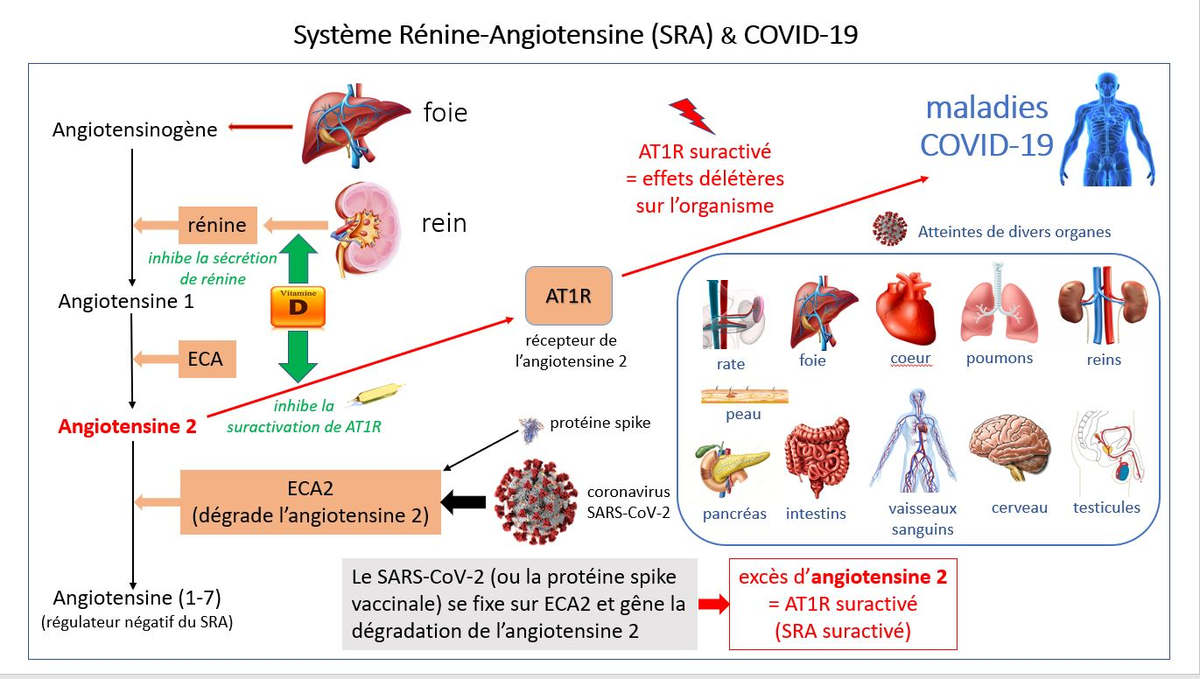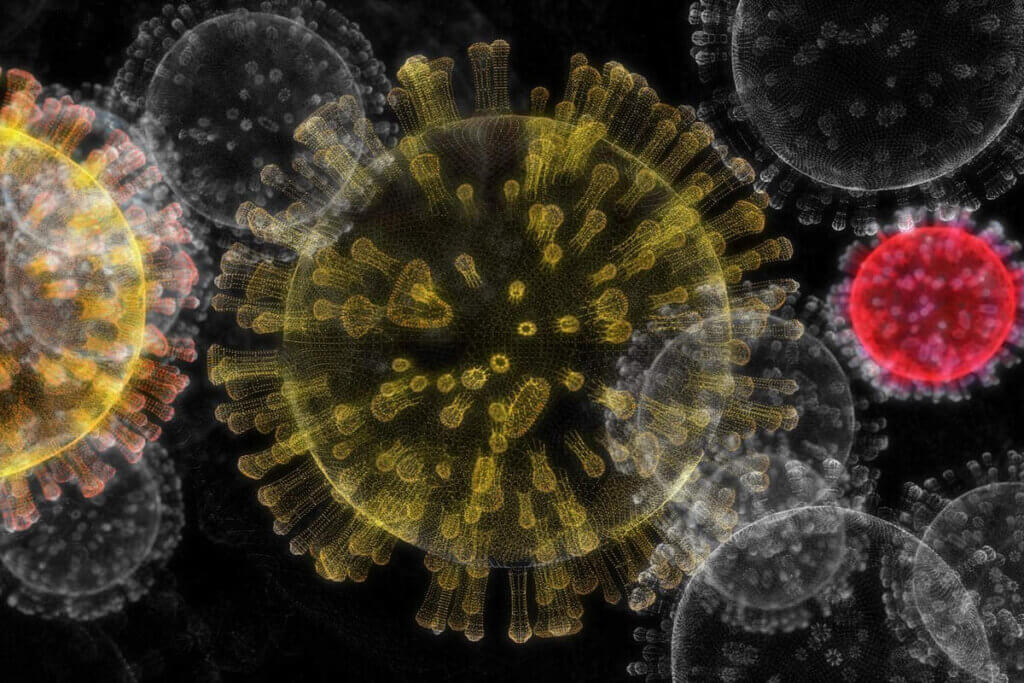Recent studies establish a link between Covid-19 and many diseases: deregulation of the innate immune system, alteration of the intestinal microbiota, etc. These mechanisms were described as early as March and published in April 2020 by Jean-Marc Sabatier*.
A study published on November 9 in the Journal of medical virology attempts to unravel the mysteries of Covid-long which would affect nearly two million people in France. The study, conducted by the team of Alain Thierry, an Inserm researcher at the Cancer Research Institute in Montpellier, “highlights the possible role of deregulation of part of the innate immune defense.”
The researchers are on the trail of the production of “extracellular neutrophil traps” (these proliferate = neutrophilia), a first-line defense mechanism against pathogens, could have a role in the persistence of symptoms at six months, in patients who have developed a severe form of Covid-19. “These extracellular traps may also, in some cases, trigger excessive inflammation, which is deleterious to the body.”
According to Alain Thierry, quoted by Midi Libre: “Their activation leads to a succession of micro-thromboses in the heart, blood vessels in particular, and an inflammation characteristic of the pathologies associated with long Covid, comorbidities well known to doctors: phlebitis, arterial thrombosis, joint inflammation, hypertension…”
Alain Thierry and his team filed a patent last August for a blood test to identify these markers, adds the Montpellier daily.
The intestinal microbiota
Another study published in Nature Communications and reprinted in Science et Avenir on November 8, 2022 reveals that Covid-19 infection directly disrupts the gut microbiota. “In severe Covid-19, flora imbalances can cause bacterial superinfections… antibiotics, taken as a preventive measure in hospitalized patients to avoid hospital-acquired disease, have a well-known effect on microbiota dysbiosis that may amplify that of SARS-CoV-2.”
“We are the first to detect effects on epithelial cells (of the intestinal wall) and to show that antibiotics can worsen the situation,” says Lucie Bernard-Raichon lead author of this work. (…) We observe that the infection is therefore induced indirectly, probably by the overactivation of the immune response.”
A fundamental discovery
These two studies confirm, two and a half years later, what Jean-Marc Sabatier revealed in a study published in April 2020. A fundamental discovery made with virologists from Wuhan (China).
The renin-angiotensin system (RAS) is the ‘real’ culprit in Covid-19, and SARS-CoV-2 is the oil that is put on the fire,” he explained in infodujour.fr.
The RAS is responsible for “Covid-19-like” diseases via an overactivation of its “deleterious” receptor AT1R. This overactivated RAS receptor disrupts the innate immunity that it drives, and induces mainly vasoconstriction/hypertension, inflammation, oxidative stress, hypoxia, angiogenesis, thrombosis, nitric oxide drop, hypertrophy and organ fibrosis. It is the cause of macrophage activation syndrome (responsible for hemophagocytosis, i.e., the attack on red blood cells, white blood cells and platelets) and mast cell activation syndrome.
This “deleterious” effect of the dysfunctional RAS can affect many organs and tissues in our body and results in the potential development of symptoms and diseases such as: high blood pressure, atherosclerosis, hypertrophy (heart, lungs, etc.) and organ fibrosis (heart, lungs, kidneys, liver, heart failure, kidney and lung damage (including acute respiratory distress syndrome, and asthma), anaphylaxis, and other diseases. ) and organ fibrosis (heart, lungs, kidneys, liver), heart failure, kidney and lung damage (including acute respiratory distress syndrome and asthma), anosmia (loss of smell), agueusia (loss of taste), neurological disorders / memory impairment, diarrhea, intestinal and vascular inflammation, lipid metabolism dysfunction, obesity and action on glucose metabolism (type 2 diabetes), thrombosis / coagulopathy, skin and testicular damage.
Furthermore, it appears that the “deregulated” RAS could be closely linked to the triggering of cognitive/neurological disorders, cancers, and other autoimmune diseases (multiple sclerosis, rheumatoid arthritis, etc.), through its actions on the central nervous system, cell proliferation and adhesion, and “innate” immunity.
Read his full interview below.
It is high time that scientists working on Covid-19 study the RAS and the repercussions of its dysfunction, which translates into an overactivation of its deleterious receptor AT1R, to better understand the origin of Covid-19 (and long Covid) pathologies in order to remedy them.
*Jean-Marc Sabatier, Director of Research at the CNRS and Doctor in Cell Biology and Microbiology, HDR in Biochemistry. Editor-in-Chief of the international scientific journals: “Coronaviruses” and “Infectious Disorders – Drug Targets”. He speaks here in his own name.


